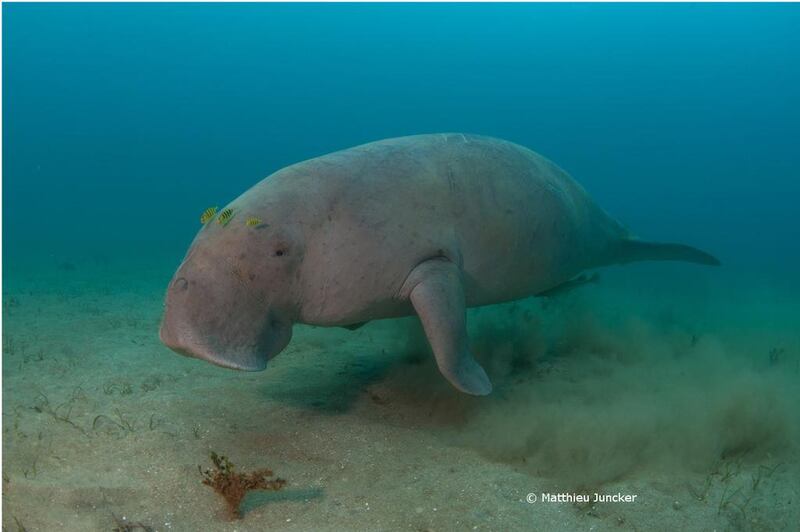ABU DHABI // A Dh21.3 million fund has been launched to save the endangered dugong and its seagrass ecosystems across the Indian and the Pacific oceans.
The Mohammed bin Zayed Species Conservation Fund will launch 38 projects in Indonesia, East Timor, the Solomon Islands, Sri Lanka, Malaysia, Madagascar, Mozambique and Vanuatu, the state news agency Wam reported.
“The presence of dugong and seagrass in a marine ecosystem is a good indication that the ecosystem is healthy,” said Razan Al Mubarak, managing director of the MBZ Fund.
“Protecting these species and their environment is good for local communities because a healthy marine environment provides plentiful food, protects coasts from storm erosion and ensures clean seawater.”
The MBZ Fund also announced that it would be linking up with students from Zayed University and 16 other international universities to help raise awareness on the subject.
The students met in Abu Dhabi on Sunday for the final submissions of their social media awareness campaigns and public relations suggestions, having been collaborating by Skype for the past three months.
The fund, along with the Environment Agency Abu Dhabi and the Dugong and Seagrass Conservation Project, will take suggestions from the 10 teams, gathered by Glob Comm Instate, and implement the best ideas.
Nupur Amin, 20, a first-year student from Emerson College in Boston, was grouped with 30 students from 15 universities to come up with a public awareness campaign on dugong and seagrass conservation.
“When we got our brief and it said seagrass and dugong conservation, we were like, ‘what is a dugong?’ But immediately everyone Googled this creature,” Ms Amin said.
“Once we got that, it then became a question of how do you work across cultures, across time zones, with language barriers.”
In her group alone, she said, they had 12 nationalities gathering every week across an eight-hour time difference, on Skype.
“The more you read about it, the more you watch videos, you realise that it’s kind of unfair that dugongs are as neglected as they are, and people don’t really pay attention to animals not considered cute or fluffy,” she said.
The dugong is on the International Union for Conservation of Nature Red List of Threatened Species as vulnerable to extinction as a result of being hit by vessels, illegal fishing and loss of their habit.
Seagrass beds, its main source of food, have been disappearing at an average rate of two football fields an hour, mostly because of coastal development.
Seagrass meadows, despite their importance, have minimal environmental protection.
Mashael Adel, an Emirati Zayed University student who led a team of 30 students, said she now felt involved in the health of the animal despite having not known about its existence in UAE waters until months ago.
“We didn’t even know that we had dugongs in the UAE but when we found out, we realised it’s something precious that we have an endangered species. We want to save it, not only as a -token of national pride but also for future generations,” she said.
nalwasmi@thenational.ae





